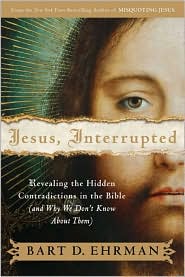“For freedom Christ has set us free. So stand firm and do not be subject to the yoke of slavery again” (Gal 5:1). These words are Paul’s powerful plea to the Galatian Christians not to allow themselves to be subject to the law, but to live as people truly set free in Christ by the Spirit. The problem with applying these words, and much of the rest of Galatians, is that most Christians today are not tempted to take up the Jewish law as a means of living the Christian life. So what does Paul’s plea have to do with us today?
First, my reflections on the application of this passage come from someone who serves in a traditional Southern Baptist church; I do not pretend that these points of application are universal (everyone has their own areas of enslavement). However, I believe that many traditional Southern Baptist churches today are living under the yoke of slavery. We are no longer enslaved to the law, but now we are enslaved to our traditions and our selfish desires.
Take for example a “traditional” Southern Baptist church. This church meets for Sunday school at 9:15 on Sunday morning and for worship at 10:30 or 11:00. The church meets again for worship at 6:00 and gathers to pray for the sick on Wednesday evenings. The church sings hymns that are accompanied by a piano and an organ. The church meets in a building that “looks like a church” (whatever that nonsensical phrase means) and has committees that make sure that the church functions properly. Christians are expected to worship at these kinds of churches, and devout believers show up on Sunday and Wednesday nights. They arrive dressed in suit and tie out of respect for the reverence of the occasion.
This portrait might be a bit of a caricature, but many will recognize in the drawing a picture of the traditional Southern Baptist church. Before going any further, I want to clarify that none of these things are inherently bad: owning a building with a steeple, wearing a suit to church, singing hymns, etc. However, I would suggest that many of our churches have become enslaved to this way of doing church. Having been set free to live by the Spirit, we have enslaved ourselves to a style of doing church
Perhaps change in the church is difficult not just because we are creatures of habit or because we have our own preferences and styles. Perhaps change in the church is difficult because we have enslaved ourselves to a certain way of doing church. We have judged our obedience and Christian maturity based on whether we are following this model, not on whether we are in step with the Spirit. We are not free to follow the Spirit as churches because we have restricted ourselves to a certain model of church.
May we become free as churches; not free to indulge our own interests, but free to follow the Spirit wherever He leads.
